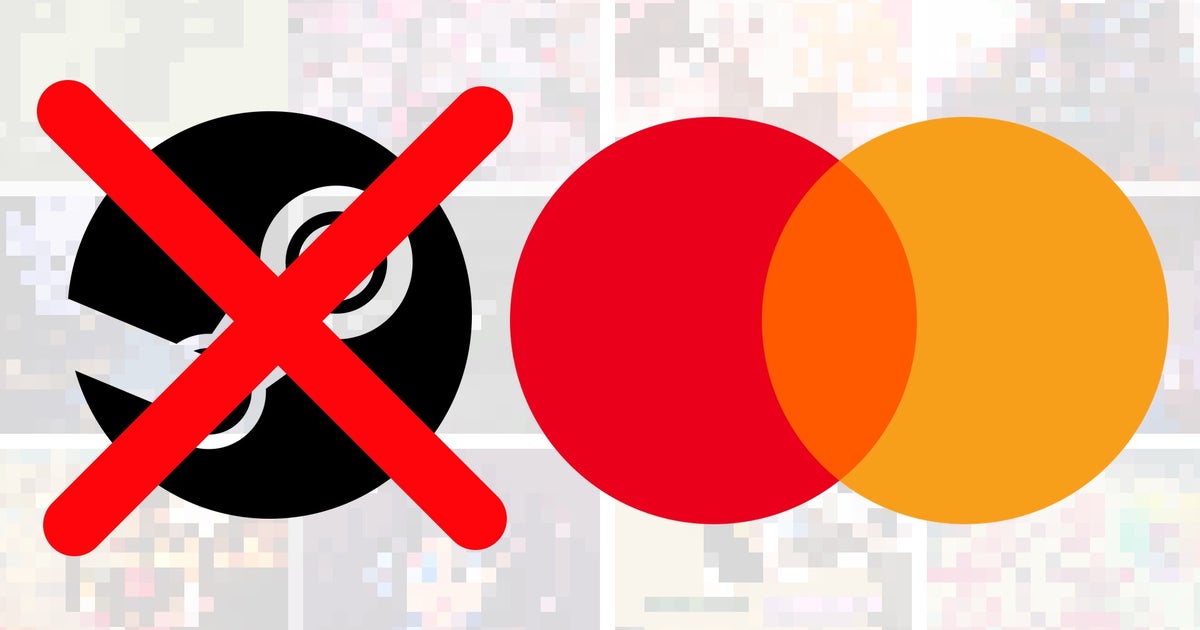

As Steam and Itch.io continued to grapple with recent pressure by payment processors to withdraw NSFW games from their platforms, Mastercard has moved to distance itself from the ensuing censorship controversy, insisting it has not "required restrictions of any" game. But Valve says otherwise, pointing to a Mastercard rule saying the company can refuse to process anything it believes 'reflects negatively' on its brand.
Last month, Valve introduced vague new guidelines preventing "certain types of adult content" from being distributed on Steam, later confirming it had begun "retiring" certain adult games that "may violate the rules and standards set forth by our payment processors and their related card networks and banks". Shortly after, indie-focused digital distribution platform Itch.io began 'deindexing' all NSFW games, blaming the same anti-porn group - Australia-based Collective Shout - that had pressured Visa, Mastercard, and PayPal into targeting Steam. In both cases, Itch.io and Valve noted the support of payment processors was essential to the ongoing operation of their platforms.
Plenty has happened since then; Itch.io has begun reindexing free NSFW games and confirmed it's looking to partner with a payment processor comfortable with adult material, while other parts of the games industry - including rival storefront GOG with its FreedomToBuy campaign - have spoken out against game censorship. But amid all this, Mastercard is now attempting to distance itself from recent events, denying it put pressure on Itch.io and Valve to remove games from their platforms. In a statement shared on its website, the credit card company insisted it had "not evaluated any game or required restrictions of any activity on game creator sites and platforms, contrary to media reports and allegations."
"Our payment network follows standards based on the rule of law," it continued. "Put simply, we allow all lawful purchases on our network. At the same time, we require merchants to have appropriate controls to ensure Mastercard cards cannot be used for unlawful purchases, including illegal adult content."
However, Valve claims otherwise, saying that while Mastercard didn't directly pressure it to remove adult content from Steam, the credit card company instead "communicated with payment processors and their acquiring banks", and these, in turn, contacted Valve.
"Mastercard did not communicate with Valve directly, despite our request to do so," the Steam operator wrote in a statement shared with Kotaku over the weekend. "Mastercard communicated with payment processors and their acquiring banks. Payment processors communicated this with Valve, and we replied by outlining Steam's policy since 2018 of attempting to distribute games that are legal for distribution. Payment processors rejected this, and specifically cited Mastercard's Rule 5.12.7 and risk to the Mastercard brand."
Mastercard's Rule 5.12.7 prohibits transactions that are illegal or that "in the sole discretion of the Corporation, may damage the goodwill of the Corporation or reflect negatively on the Marks." The first part is easy to define - Mastercard says the sale of "products or services other than [those] in full compliance with law" violates its terms - but the second is more open-ended, giving the company potentially limitless freedom to define what is and isn't acceptable. It can then either fine, audit, or withdraw services for violations.
This latter clause prohibits "the sale of a product or service, including an image, which is patently offensive and lacks serious artistic value (such as, by way of example and not limitation, images of nonconsensual sexual behavior, sexual exploitation of a minor, nonconsensual mutilation of a person or body part, and bestiality)", but also "any other material that the Corporation deems unacceptable to sell in connection with a Mark."
As the events at Steam and Itch.io have continued to unfold, industry figures and representative bodies have spoken out against payment processor overreach. The International Game Developer Association recently showed its support for games depicting "consensual adult content", pushing back against "financial institutions... influencing which stories can be told and sold in games, with minimal transparency or public accountability". But with adult content increasingly under fire - as more countries begin drafting legislation such as the UK's controversial Online Safety Act - the adult games industry may have a difficult road ahead.











-3.png)



